Exosome Microbiomics Analysis Service
To gain a deeper understanding of the intricate relationships between microorganisms and host cells, Creative Biostructure offers comprehensive exosome microbiomics analysis services. Our expert team leverages cutting-edge exosome analysis technology to deliver precise and detailed insights that are crucial for exploring novel disease markers and therapeutic targets.
Why Conduct Exosome Microbiomics Analysis?
Understanding Host-Microorganism Interactions
- Exosomes as Defense Mechanisms: Exosomes play a crucial role in the host's defense against microorganisms. They can carry immune-related molecules such as antimicrobial peptides and antibodies to inhibit the growth and reproduction of pathogens. Additionally, exosomes can encapsulate and remove microorganisms to prevent further infection.
- Microorganisms Influencing Exosomes: Some microorganisms can induce host cells to produce specific types of exosomes carrying signaling molecules related to microbial infection. This modulation can help in regulating the host immune response and may facilitate the microorganism's survival and reproduction in host cells.
Exploring Microbial Infections and Immune Responses
- Studying Cross-Cellular Transmission: Microorganisms can attach to exosomes and use them as vehicles to enter other cells, achieving cross-cellular transmission. Understanding this process can provide insights into how infections spread and persist within the host.
- Impact on Intercellular Communication: Microorganisms can directly interfere with the release and delivery of exosomes, thus affecting intercellular communication and material exchange. Analyzing these interactions can advance our understanding of pathogenic strategies and host defenses.
Identifying Disease Markers and Therapeutic Targets
- Discovery of New Disease Markers: By analyzing the microbiomics of exosomes, researchers can identify new biomarkers for microbial infections. These biomarkers can be used for early disease detection and monitoring.
- Developing Therapeutic Targets: The detailed study of exosome-microorganism interactions can unveil potential therapeutic targets. Understanding how microorganisms exploit exosomes and how host cells respond can lead to the development of innovative treatment strategies.
Exosome Microbiomics Analysis at Creative Biostructure
Our exosome microbiomics analysis service utilizes cutting-edge molecular technologies to explore the complex interactions between exosomes and microorganisms, providing insights into host defense mechanisms, microbial influence on exosome production, and potential new therapeutic targets.
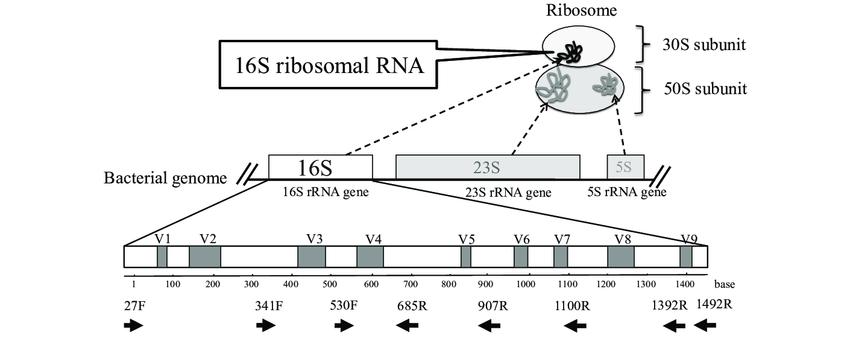 Figure 1. Universal microbiome testing principle. (Fukuda K, et al., 2016).
Figure 1. Universal microbiome testing principle. (Fukuda K, et al., 2016).
- We begin with the careful collection of biological samples from clients, ensuring proper storage and handling conditions to maintain the integrity of exosomes and microorganisms. The samples are then prepared for analysis, which may include centrifugation and filtration to isolate exosomes.
Leveraging our extensive project experience in the field of exosomes, Creative Biostructure is committed to providing customers with accurate and comprehensive exosome microbiomics data support. If you are interested in our services, please contact us for a detailed quote.
Key Advantages of Our Services
- Cutting-Edge Molecular Detection: We employ a range of molecular techniques targeting the 16S rRNA gene, including FISH, Q-PCR, T-RFLP, and DGGE. These methods offer a robust approach to detect and quantify microorganisms, providing a detailed profile of the microbial community within the sample.
- Integration with Exosome Research: Our unique approach integrates microbial data with exosome studies, exploring the intricate relationship between microorganisms and exosome production, release, and function. This provides a holistic view of the interactions within the host-microbe interface.
- Expert Data Analysis and Interpretation: We provide detailed reports and offer consultation services to help clients understand the implications of their results. Our service not only aids in the discovery of new disease markers and therapeutic targets but also contributes to a deeper understanding of the mechanisms of microbial infection.
- Customizable Service: We offer a customizable service that can be tailored to specific research questions. This flexibility ensures that our clients receive the most relevant and valuable analysis for their unique requirements.
Resources
Frequently Asked Questions
-
How does your analytical technology ensure the accuracy of exosome microbiomics data?
Our advanced techniques include next-generation sequencing, mass spectrometry, and bioinformatics analysis. These technologies ensure accurate and comprehensive data capture, reducing the likelihood of errors and providing reliable results. Our team of experts has extensive experience in the field, ensuring that every step, from sample preparation to data interpretation, is executed with the utmost precision.
-
What types of samples are compatible with your service, and are there any special requirements for sample preparation?
Our service is compatible with a wide range of biological samples, including but not limited to blood, urine, and tissue samples. We will provide you with clear guidelines for sample collection and preparation to ensure the integrity of the exosomes and the accuracy of the analysis.
-
What is the typical turnaround time for your exosome microbiomics analysis service?
Our standard turnaround time is typically within 4-6 weeks from the receipt of the sample. However, this can vary depending on the complexity of the analysis and the specific requirements of your project. We will provide you with a detailed timeline at the outset of the project.
Ordering Process
References
- Fukuda K, Ogawa M, Taniguchi H, et al. Molecular approaches to studying microbial communities: targeting the 16S ribosomal RNA gene. Journal of UOEH. 2016. 38(3): 223-232.
- Hou K, Wu Z X, Chen X Y, et al. Microbiota in health and diseases. Signal Transduction and Targeted Therapy. 2022. 7(1): 1-28.
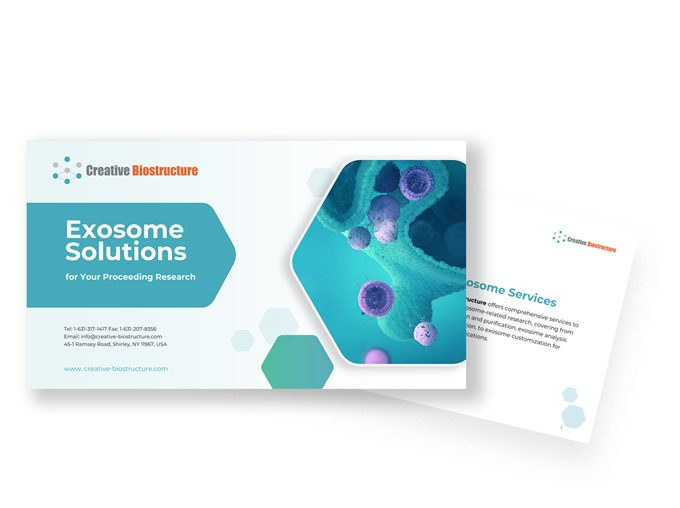 Exosome Solutions for Your Proceeding Research
Exosome Solutions for Your Proceeding Research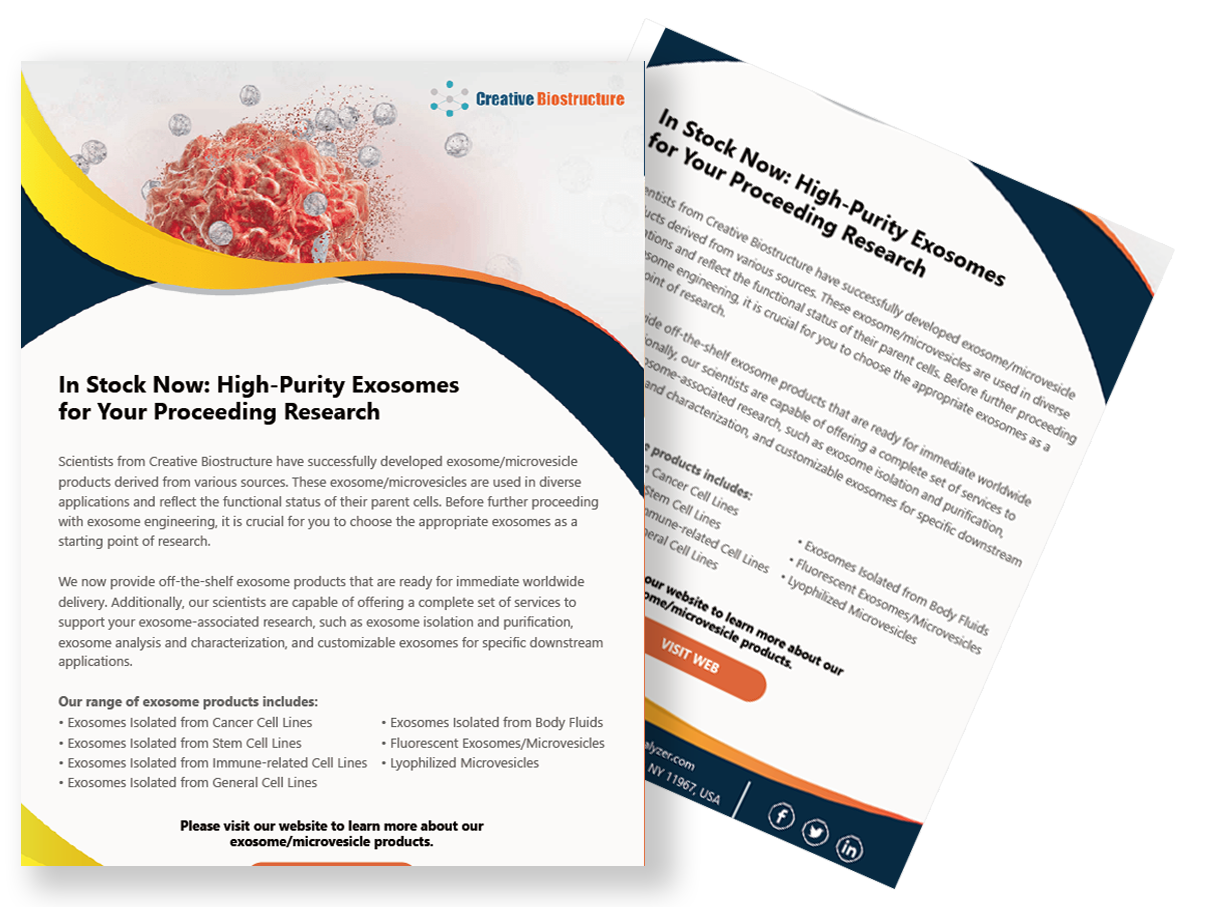
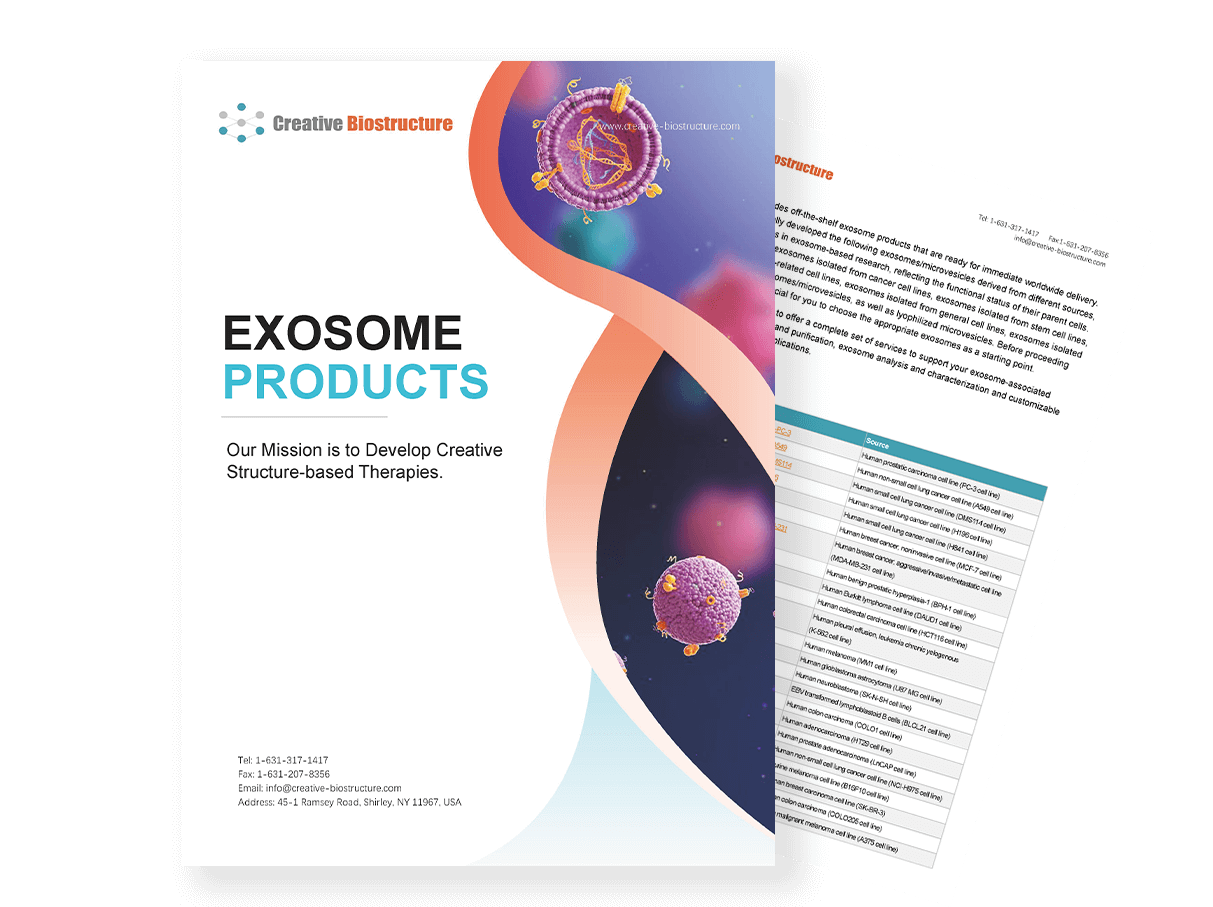 Exosomes Products
Exosomes Products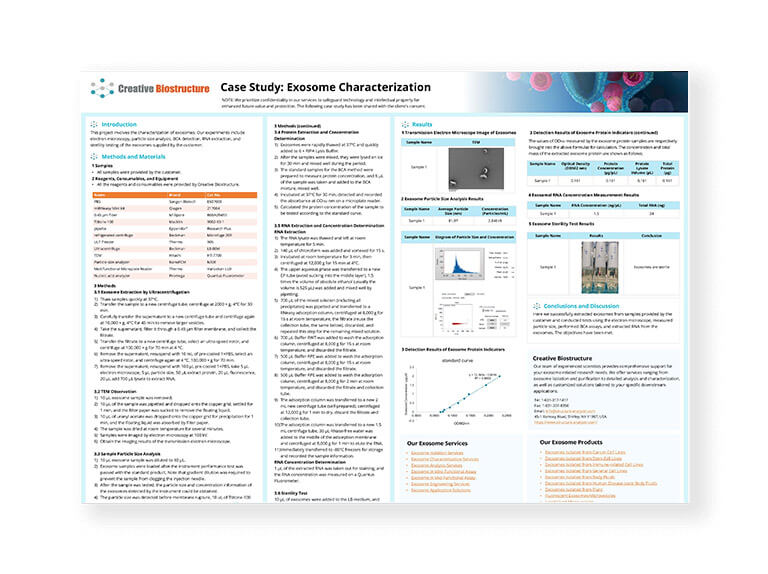 Exosome Characterization
Exosome Characterization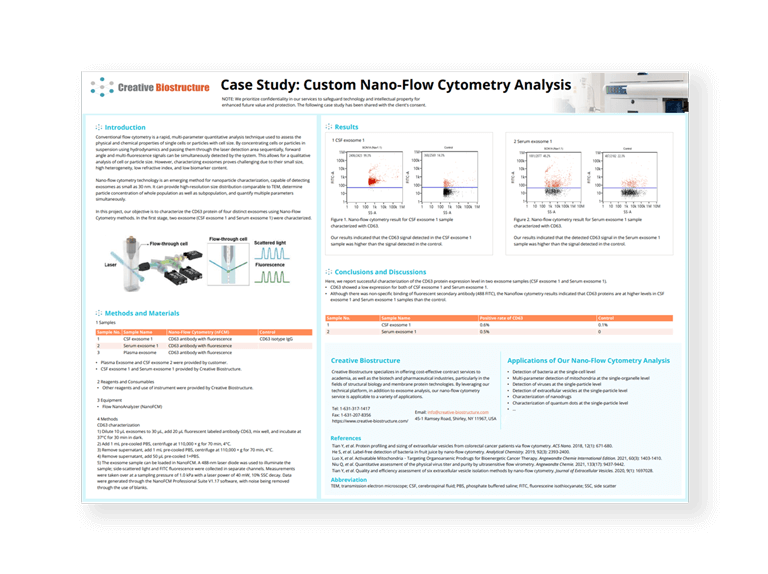 Custom Nano-Flow Cytometry Analysis
Custom Nano-Flow Cytometry Analysis